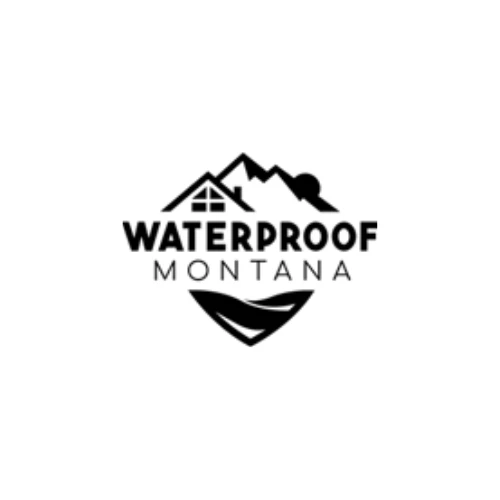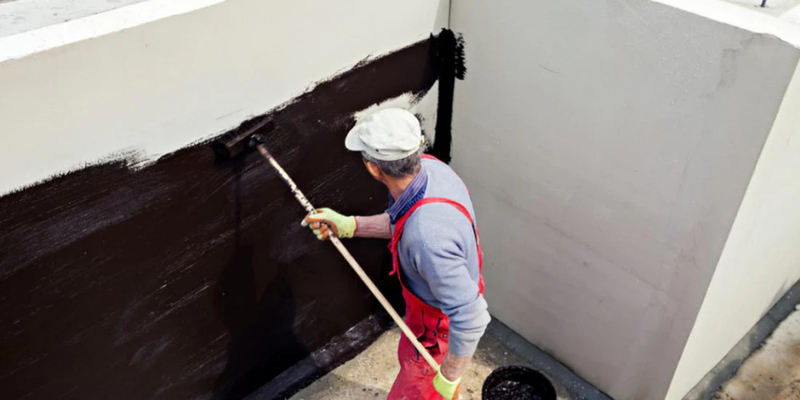Water intrusion is one of the most common and costly problems buildings face, especially those with underground structures. The risk of water damage is significant, whether it's a basement, foundation, or any other part of a building located below ground level. This is why commercial waterproofing is crucial in protecting properties from moisture-related issues. Among the various waterproofing methods, below-grade waterproofing is essential for safeguarding buildings' structural integrity and longevity.
What Is Below Grade Waterproofing?
Below-grade waterproofing refers to the process of protecting below-ground structures, such as basements, foundations, tunnels, and parking garages, from water infiltration. "Below grade" simply means any part of the building below the surrounding ground level. Since these areas are in direct contact with soil and groundwater, they are highly susceptible to moisture penetration.
This waterproofing method typically involves the application of specialized membranes, coatings, drainage systems, and sealants designed to prevent water from seeping through concrete or masonry walls and floors. It is a proactive approach that addresses water issues before they cause structural damage, mold growth, or interior flooding.
Why Is Below Grade Waterproofing Important?
Water damage below ground level can lead to serious consequences if left unaddressed. The importance of below-grade waterproofing can be understood by looking at the common problems caused by inadequate waterproofing:
- Structural Damage: Persistent water exposure weakens concrete and masonry, leading to cracks, erosion, and in severe cases, foundation failure.
- Mold and Mildew Growth: Moist environments encourage mold proliferation, harming indoor air quality and posing health risks to occupants.
- Interior Flooding and Damage: Water intrusion can ruin finishes, insulation, electrical systems, and stored items, resulting in costly repairs and downtime.
- Reduced Property Value: A building with water damage issues will have diminished value and can be challenging to sell or lease.
Effective below-grade waterproofing prevents these problems by creating a barrier against water ingress, thereby preserving the property's structural soundness and habitability.
How Does a Commercial Waterproofing Company Implement Below-Grade Waterproofing?
A professional commercial waterproofing company will conduct a thorough site inspection to assess the building’s unique water exposure risks and structural conditions. Based on their findings, they recommend and implement tailored waterproofing solutions.
Common below-grade waterproofing techniques include:
- Membrane Systems are waterproof sheets or liquid-applied membranes that coat the foundation walls and floors, forming a continuous waterproof layer.
- Drainage Solutions: Installation of drainage boards, weeping tiles, or French drains around the foundation helps redirect water away from the building.
- Sealants and Coatings: Specialized sealants fill cracks and pores in concrete surfaces, preventing water from seeping.
- Cavity Drainage Systems: These systems create a controlled channel for water to flow safely away from the interior space.
Working with an experienced commercial waterproofing company ensures all these components are correctly installed to provide long-lasting protection.
What Are the Benefits of Below-Grade Waterproofing?
Investing in below-grade waterproofing offers multiple advantages that extend beyond just preventing water damage:
1. Enhanced Structural Integrity
By keeping water away from foundation elements, waterproofing helps maintain the strength and durability of the building’s structure. This reduces the risk of costly repairs and structural failures over time.
2. Improved Indoor Air Quality
Waterproofing minimizes moisture buildup, reducing mold and mildew growth. This contributes to healthier indoor environments for occupants, which is especially important in commercial and residential spaces.
3. Increased Property Value
A dry, stable building attracts more buyers, tenants, and investors. Proper below-grade waterproofing can enhance marketability and increase property value.
4. Cost Savings on Repairs
Preventing water damage upfront is significantly more economical than dealing with repairs caused by leaks, flooding, or mold remediation. Waterproofing protects your investment and saves money in the long run.
5. Peace of Mind
Knowing your building is protected from water-related risks gives owners and occupants confidence and peace of mind.
Conclusion
Below-grade waterproofing is vital to any effective building maintenance strategy, especially for structures with underground sections vulnerable to water exposure. It protects the foundation and basement areas from costly water damage and ensures the health and safety of the building’s occupants. Property owners can secure their investment, improve property value, and enjoy a safer, drier environment by partnering with a trusted commercial waterproofing company. Whether you’re constructing a new building or maintaining an existing one, prioritizing below-grade waterproofing is a wise decision for long-term durability and peace of mind.



